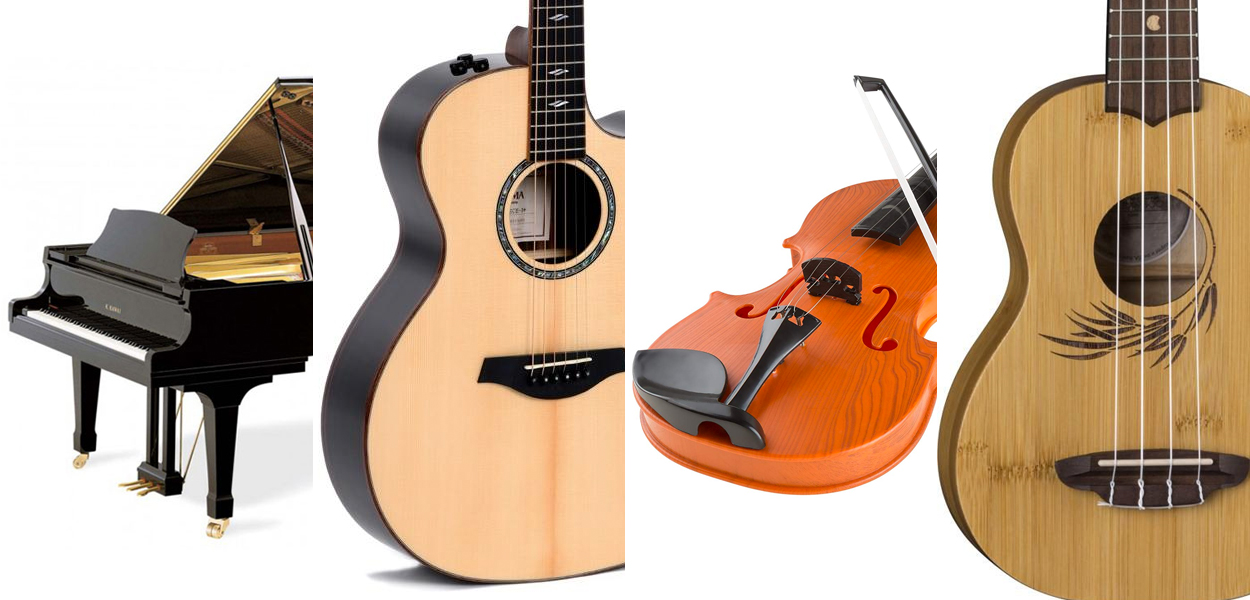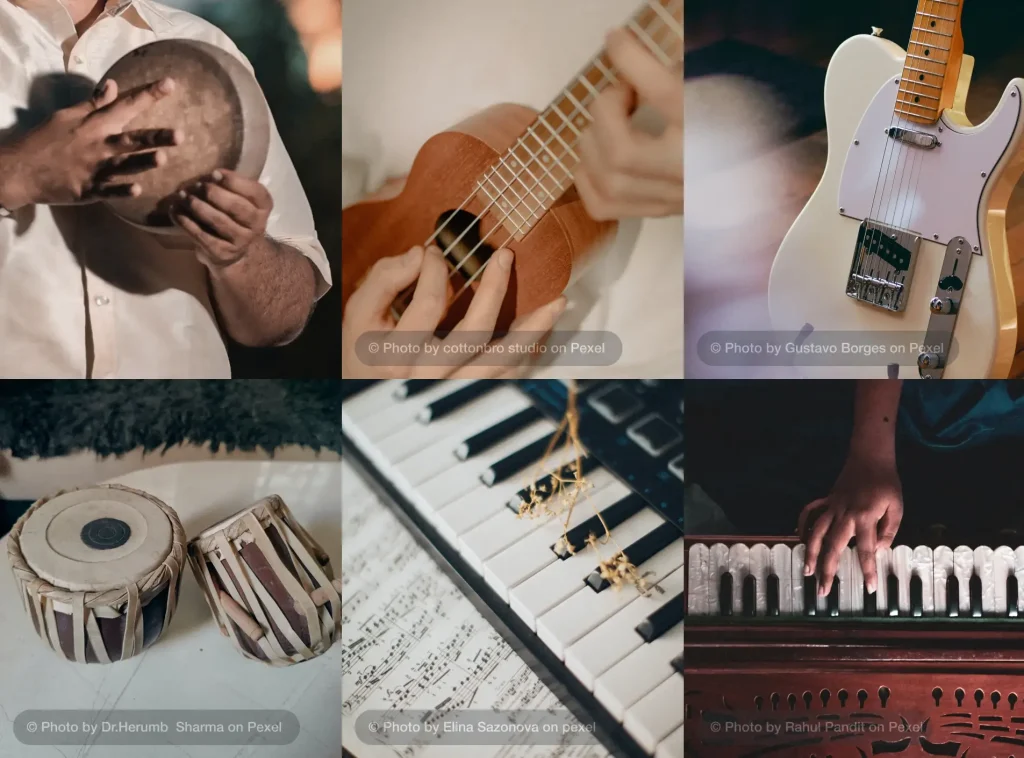Blog
“Top 5 Instruments That Are Easy to Learn for All Ages”
Learning a musical instrument can be a rewarding and fulfilling experience, but choosing the right instrument can sometimes feel like a daunting task. Whether you’re a child, a teenager, or an adult looking to explore your musical potential, some instruments are easier to pick up and learn than others. If you’re looking for an instrument that’s accessible, enjoyable, and can be learned at your own pace, here are the top 5 instruments that are easy to learn for all ages.
1. Ukulele
Why It’s Easy to Learn
The ukulele is often considered one of the easiest stringed instruments to learn, making it ideal for beginners of all ages. It has only four strings, which are tuned to a higher pitch, making the chords simpler to form compared to other stringed instruments like the guitar. Additionally, the smaller size of the ukulele makes it more manageable for children and adults alike.
Learning Curve
The basic chords on the ukulele are easy to master, and many songs can be played with just a few simple chord changes. This makes it an ideal choice for beginners who want quick results. Ukulele tutorials are widely available online, and its cheerful, lighthearted sound makes learning enjoyable.
Who It’s Best For
The ukulele is great for younger learners, adults looking for a simple and fun instrument, and anyone who wants to play pop songs, folk music, or traditional Hawaiian tunes. Its portability also makes it an excellent choice for people who want to take their music on the go.
2. Piano
Why It’s Easy to Learn
The piano is one of the most versatile and rewarding instruments to learn. It offers visual cues—like the layout of keys—that make it easier to understand and play music. The concept of playing scales and chords is straightforward, and because the notes are arranged sequentially (C to B), beginners can quickly pick up melodies and harmonies.
Learning Curve
While mastering the piano can take time, beginners can start with simple tunes right away. The piano also offers the benefit of playing both melody and harmony simultaneously, allowing learners to develop a strong musical foundation. Online tutorials, apps, and beginner books are abundant, making learning easier.

Who It’s Best For
The piano is perfect for beginners of all ages, from young children to adults. It provides a strong foundation for learning other instruments and is suitable for a variety of musical genres, from classical to pop to jazz. Its wide availability in schools and homes also makes it a convenient choice for anyone starting their musical journey.
3. Recorder
Why It’s Easy to Learn
The recorder is a wind instrument that is often introduced to children in school due to its simplicity. It has only a few holes, and the fingerings are intuitive. The recorder also doesn’t require a lot of breath control, making it easier for young beginners to produce a sound without excessive effort.
Learning Curve
Because the recorder is small and lightweight, it’s an easy instrument for young children to handle. Basic songs can be learned quickly, and because it’s a relatively inexpensive instrument, it’s a great choice for beginners on a budget. Teachers often use it as a stepping stone to other wind instruments like the flute or clarinet.
Who It’s Best For
The recorder is great for children, as it’s often part of elementary school music programs. It’s also a good choice for anyone who wants to explore wind instruments but finds larger instruments like the flute or clarinet too challenging. It’s portable, affordable, and easy to learn, making it a great entry point into the world of music.
4. Guitar (Acoustic)
Why It’s Easy to Learn
The guitar is one of the most popular instruments in the world, and for good reason. Acoustic guitars have a relatively low learning curve for beginners. The chord shapes are straightforward, and many songs can be played using only a handful of chords. Additionally, guitarists can easily accompany themselves by strumming along to a wide variety of musical genres.
Learning Curve
While learning to play the guitar requires some finger strength and coordination, beginners can play simple songs in just a few lessons. Many people are drawn to the guitar because it offers quick results; once you learn a few basic chords, you can start playing your favorite songs. There are also many online resources, apps, and books that make learning easier.
Who It’s Best For
The guitar is perfect for people of all ages who are interested in popular music, rock, folk, or blues. It’s great for both children and adults, and because it’s so popular, it’s easy to find lessons and support online or in local music schools. Its versatility in genres also makes it a top choice for beginners who want to try their hand at different musical styles.
5. Bongos
Why They’re Easy to Learn
Bongos are a type of percussion instrument that consists of two small drums. These drums are played by hand and can produce a wide variety of rhythmic sounds. Because they don’t require complex fingerings or coordination like melodic instruments, bongos are very accessible to beginners.
Learning Curve
Unlike many other percussion instruments, bongos don’t require prior experience in drumming or rhythm. Beginners can start by learning basic beats and rhythms, and with practice, they can gradually increase their speed and complexity. The bongo’s simple setup and easy-to-learn patterns make it an ideal first percussion instrument.
Who It’s Best For

Bongos are great for people of all ages who are interested in percussion. They’re particularly suited for individuals who want to explore rhythm and enjoy playing in a group setting. Due to their portability and ease of learning, they’re a perfect choice for young children, casual players, or anyone interested in experimenting with rhythm.
Conclusion
Choosing the right instrument is an important part of the learning process, and these five instruments offer accessible entry points for musicians of all ages. Whether you’re looking for something simple and fun like the ukulele, or something with a bit more complexity like the guitar or piano, each of these instruments provides a pathway to musical exploration. Starting with an instrument that suits your learning style and interests will help foster a lifelong passion for music. So, pick up an instrument and start making beautiful sounds today—it’s never too late to learn!


